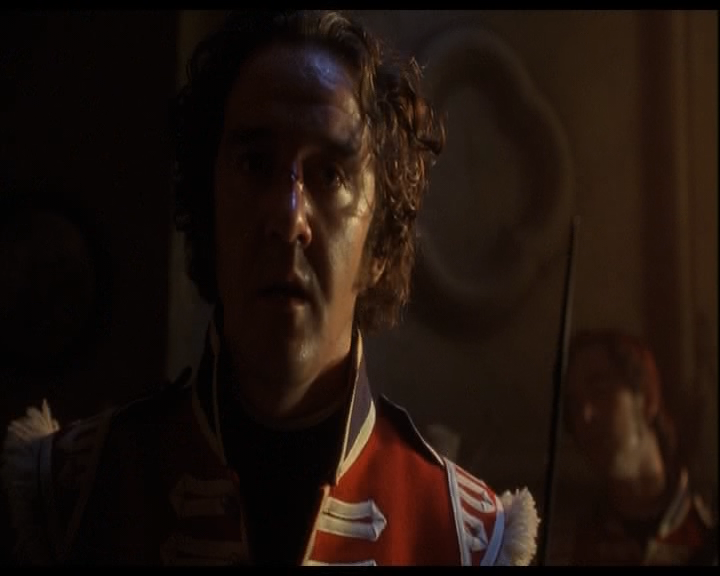Is The Count Of Monte Cristo Still Relevant Today? A Modern Review

Table of Contents
Enduring Themes of Betrayal and Revenge
H3: The Allure of Revenge: The human fascination with revenge narratives is undeniable. The Count of Monte Cristo masterfully taps into this primal emotion, exploring the psychological complexities of seeking retribution. Edmond Dantes's meticulous plan, spanning years and meticulously crafted, speaks to a deep-seated human desire for justice when the legal system fails.
- The psychological aspects: The novel reveals the corrosive nature of revenge, showing how it can consume a person, even after the initial goal is achieved. Edmond’s transformation showcases the psychological toll of betrayal and the lengths someone will go to for vengeance.
- Consequences of revenge: Dumas doesn't shy away from depicting the devastating consequences of Edmond's actions, demonstrating that revenge rarely brings true satisfaction. The collateral damage inflicted on those around him highlights the moral ambiguities inherent in his quest.
- Modern parallels: We see echoes of Edmond's desire for revenge in modern society, from personal vendettas fueled by social media to larger-scale conflicts driven by a thirst for retribution. The desire for justice, even when obtained through illicit means, remains a potent and tragically relatable theme.
H3: The Complexities of Justice: The Count of Monte Cristo critiques the failings of the judicial system, highlighting how easily justice can be manipulated by power and corruption. Edmond's wrongful imprisonment exposes the vulnerability of individuals facing powerful and unscrupulous adversaries.
- Contrasting Edmond's actions with legal justice: Edmond's methods, while satisfying to the reader on a visceral level, are decidedly outside the bounds of the law. This contrast forces us to confront the limitations of formal justice and the potential for vigilante justice, even when morally justifiable.
- Ethical dilemmas: The novel presents a series of intricate ethical dilemmas. Is revenge ever truly justified? Are the ends ever worth the means, even when the original injustice is profound? These questions linger long after the final page is turned.
- Current debates: These questions remain central to contemporary debates about justice reform, police brutality, and the disproportionate impact of the justice system on marginalized communities. Dumas's exploration of these issues provides a timeless framework for understanding ongoing discussions about fairness and equity.
Relatable Characters and Their Modern Parallels
H3: Edmond Dantes' Journey: Edmond Dantes's transformation from a naive, hopeful young man to a cunning and resourceful mastermind is a compelling arc that resonates with modern readers. His journey speaks to the human capacity for resilience and the strength of the human spirit in the face of adversity.
- Character arc analysis: The stages of Edmond’s transformation – from betrayal and despair to meticulous planning and calculated revenge – are meticulously crafted by Dumas, creating a deeply engaging character study.
- Contemporary parallels: We find echoes of Edmond's journey in contemporary narratives of individuals overcoming significant hardships and fighting for justice against powerful opponents. His story speaks to the human desire for redemption and the possibility of overcoming immense obstacles.
- Hero or villain?: The ambiguity of Edmond's character is a key element of the novel's lasting appeal. Is he a hero seeking justice, or a vengeful villain driven by a thirst for retribution? This question allows for multiple interpretations and adds to the complexity of his character.
H3: The Villains and Their Motivations: Fernand Mondego, Danglars, and Villefort represent timeless character archetypes: ambition, greed, and betrayal are their driving forces. These characters, with their flaws and motivations, are remarkably relatable, even in a modern context.
- Timeless archetypes: These villains remain relevant because their motivations – ambition, jealousy, greed – are universal and timeless. They tap into the dark side of human nature, reminding us of the potential for corruption and the consequences of unchecked power.
- Modern equivalents: We see similar characters in today's world – corrupt politicians, ruthless business executives, and individuals driven by personal gain at the expense of others. The novel's exploration of these archetypes remains strikingly relevant.
- Psychological profiles: Analyzing the psychology of these antagonists offers insight into the motivations behind their actions and adds depth to the narrative. Their flaws and failings serve as cautionary tales about the dangers of unchecked ambition and the importance of ethical conduct.
The Novel's Literary Merit and Enduring Legacy
H3: Dumas' Masterful Storytelling: Alexandre Dumas's skill as a storyteller is undeniable. His masterful use of suspense, pacing, and foreshadowing keeps the reader engaged from beginning to end. The intricate plot, the vivid characters, and the dramatic twists and turns make The Count of Monte Cristo a captivating read.
- Suspense, pacing, and foreshadowing: Dumas expertly crafts suspense through carefully placed clues and hints, building anticipation and keeping the reader guessing. The pacing is deliberate, allowing for both intense action sequences and moments of quiet reflection.
- Novel's structure: The novel’s structure – a carefully orchestrated plan of revenge unfolding over many years – is a testament to Dumas's skill in constructing a complex yet satisfying narrative.
- Comparison with contemporary authors: While the writing style might differ from contemporary novels, the core elements of compelling storytelling – vivid characters, intricate plot, and thematic depth – remain timeless and resonate with modern readers.
H3: Adaptations and Continued Influence: The continued popularity of The Count of Monte Cristo is evidenced by its numerous adaptations across various media. From classic film versions to modern television series and stage productions, the story continues to captivate new audiences.
- Significant adaptations: The numerous film, television, and stage adaptations demonstrate the story's enduring appeal and its adaptability to different mediums.
- Updated interpretations: These adaptations often update or reinterpret the source material to resonate with contemporary audiences, highlighting the story's enduring relevance.
- Influence on subsequent literature and film: The novel's influence can be seen in countless subsequent works of literature and film, highlighting its significant impact on popular culture.
Conclusion
In conclusion, The Count of Monte Cristo remains profoundly relevant today. Its exploration of betrayal, revenge, and the complexities of justice continues to resonate with readers. The relatable characters, the intricate plot, and Dumas's masterful storytelling contribute to the novel's enduring literary merit and its lasting impact on popular culture. The timeless themes of ambition, greed, and the human desire for retribution ensure that this 19th-century masterpiece continues to captivate and challenge readers worldwide. Rediscover the power and relevance of The Count of Monte Cristo today – a story that continues to captivate and challenge readers worldwide.

Featured Posts
-
 Nina Westbrook Wife Mother And More A Look At Russell Westbrooks Family
May 04, 2025
Nina Westbrook Wife Mother And More A Look At Russell Westbrooks Family
May 04, 2025 -
 Addressing Slow Traffic Movement In Darjeeling
May 04, 2025
Addressing Slow Traffic Movement In Darjeeling
May 04, 2025 -
 Amidst Engagement News Sydney Sweeney Enjoys African Safari With Friends
May 04, 2025
Amidst Engagement News Sydney Sweeney Enjoys African Safari With Friends
May 04, 2025 -
 Spring Snowfall Forecast 1 2 Inches For Parts Of Nyc Suburbs
May 04, 2025
Spring Snowfall Forecast 1 2 Inches For Parts Of Nyc Suburbs
May 04, 2025 -
 May Job Cuts Planned By Transportation Department
May 04, 2025
May Job Cuts Planned By Transportation Department
May 04, 2025
